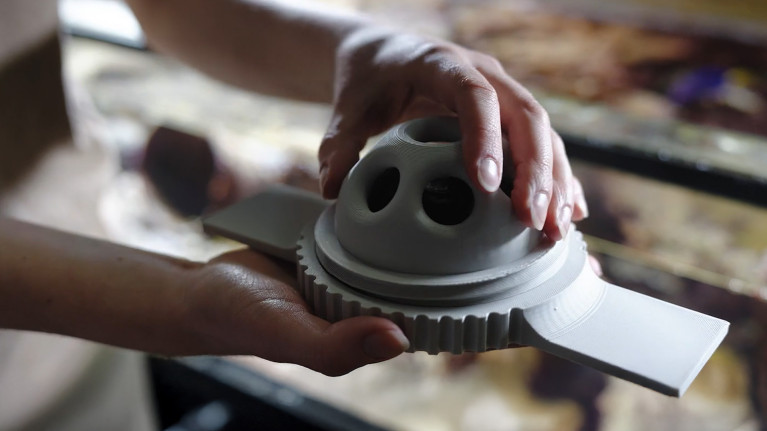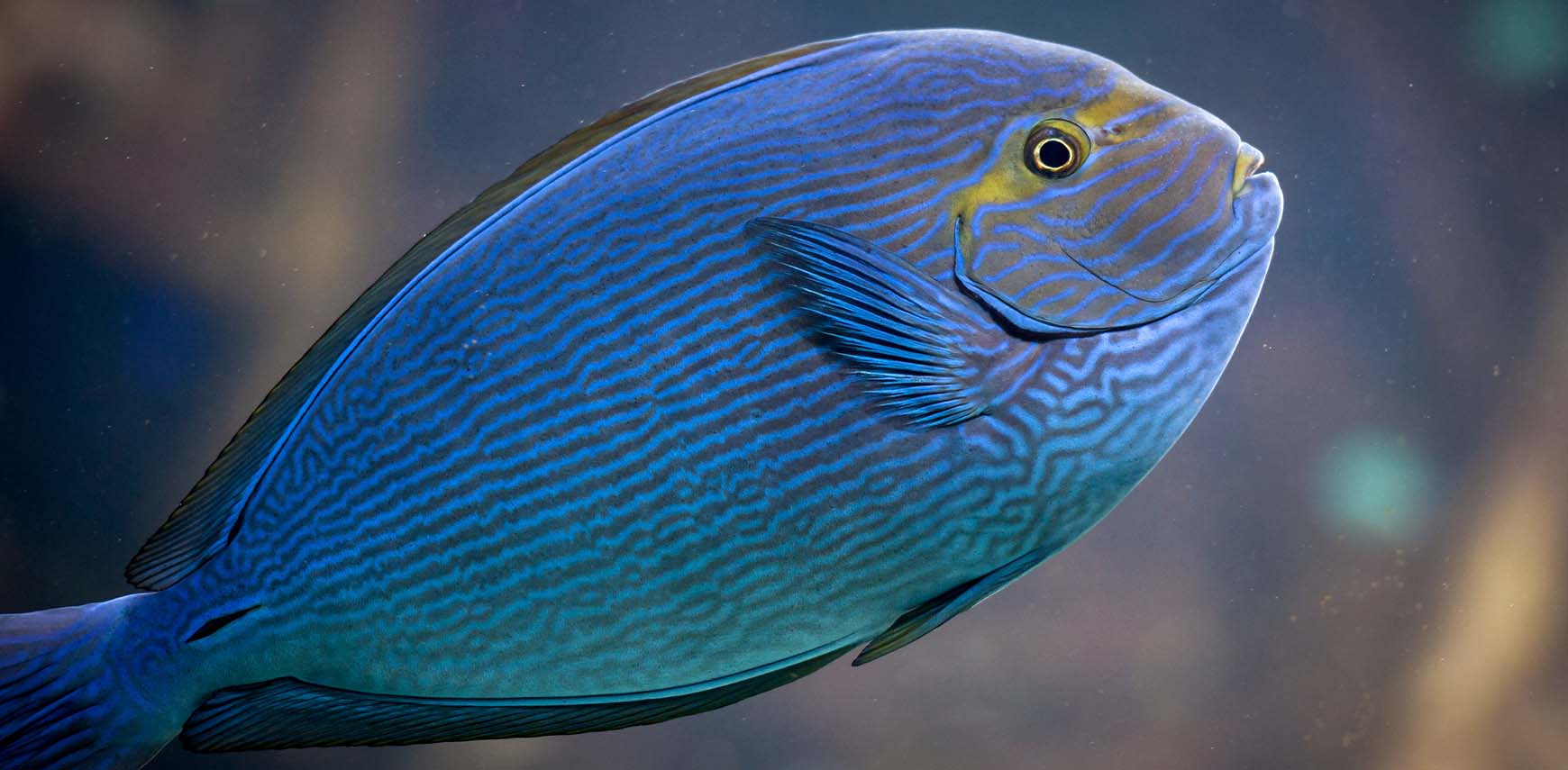The Cows of the Reef Graze in 3D
How Technology Helps Grazing Fish Behave More Naturally
Anyone lingering for a moment at Antwerp ZOO’s reef aquarium has probably spotted them: the surgeonfish, parrotfish and rabbitfish deftly manoeuvring among the coral. In the wild, these herbivorous fish play a crucial role in maintaining the coral-reef ecosystem. They graze on the algae that grow on the coral, preventing them from overgrowing the reef and keeping the corals healthy.
Grazing to Maintain Well-being
Herbivorous fish in the wild spend hours grazing on algae. Rather than eating one meal at a time, they take hundreds of small bites throughout the day. In an aquarium, this behaviour is harder to encourage because food is usually offered at set times – and disappears almost immediately. ‘A fish doesn’t eat only to survive’, says Animal Welfare Research Coordinator Marina Salas. ‘Searching for food, plucking at it and scraping it off surfaces are all part of its natural way of life. If we can mimic that in a protected environment, we can improve our animals’ well-being.’
‘Searching for food, plucking at it and scraping it off surfaces are all part of its natural way of life. If we can mimic that in a protected environment, we can improve our animals’ well-being.’
To promote this natural grazing behaviour, scientists at Antwerp ZOO examined a new form of enrichment: a 3D-printed feeding structure that encourages fish to search for and nibble at food in a way that closely mirrors their natural feeding habits.

From Observation to Innovation
The researchers developed specially designed 3D-printed feeders. These devices present food similarly to how fish encounter it in their natural habitat: they have to actively search for it – just as they would on a coral reef.
By observing the animals’ behaviour, the researchers could see how long and how often they grazed, how they moved, and whether their posture became more natural. It soon became clear that the fish not only accepted the new feeders, but responded to them with curiosity. ‘It was remarkable to see how quickly the animals adapted’, noted Salas. ‘They actively went in search of food, swam more calmly and adopted the typical grazing posture seen in the wild: vertical, with short, repeated bites.’
The study shows how modern technology (in this case, 3D printing) can contribute to the natural behaviour, enrichment and well-being of aquatic animals. ‘Although the design still needs some fine-tuning, this is another step in how we can use technology to encourage animals to act exactly as nature intended’, adds scientist Jonas Verspeek.

This project ties in perfectly with Antwerp ZOO’s broader vision, in which animal well-being goes beyond health and nutrition to include behavioural enrichment and mental stimulation. ‘We want our animals to behave in ways for which they are built. And what’s so amazing is that the technology used here doesn’t alienate us from nature – instead, it brings us closer to it.’
‘We want our animals to behave in ways for which they are built. And what’s so amazing is that the technology used here doesn’t alienate us from nature – instead, it brings us closer to it.’
The Role of Grazers in Nature
Grazing fish form a crucial link in the coral-reef ecosystem. By nibbling on algae, they keep the reef open and allow light to come in, encouraging young coral to grow. If a reef is no longer visited by grazers, or if their behaviour changes, algae can take over the reef. ‘Without grazers, coral reefs lose their resilience,’ explains Verspeek. ‘They help maintain the balance between algae and coral. Not only is their behaviour fascinating to observe, but it is of crucial importance for life in the ocean.’
By deepening their understanding of how herbivorous fish behave in a protected environment, researchers gain greater insight into their role in nature and the importance of preserving healthy coral reefs. Innovation, enrichment and nature conservation go hand in hand in their work. Every step that supports their natural behaviour in the aquarium is also a step towards improved well-being and a deeper understanding of reefs in the wild.
Would you like to learn more about coral reefs? Read our features Coral Reefs in Crisis and Moral Warriors or Coral Warriors? Fighting for Fragile Coral.

